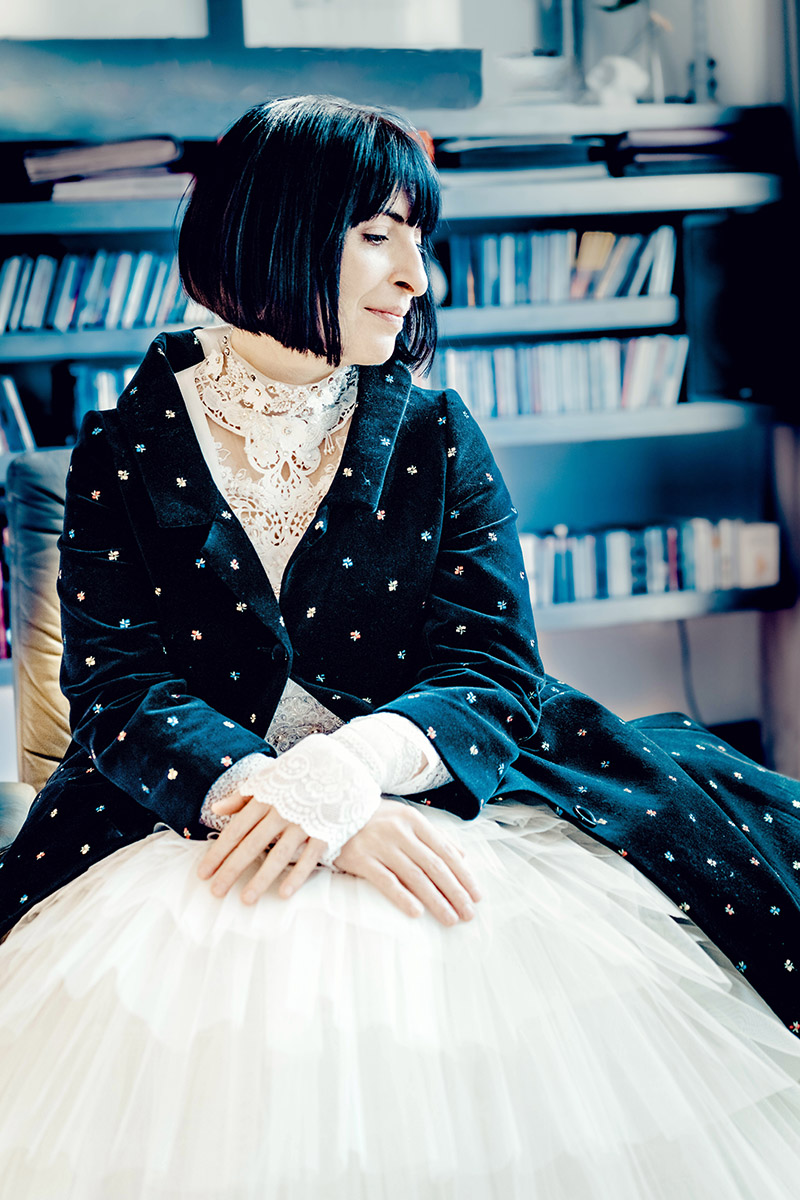Ketevan Sepashvili
MOMENTS
They are miniatures full of character: Frédéric Chopin’s Préludes. At times virtuosic, at times sentimental or romantic, the composer has left behind immortal classics. Georgian pianist Ketevan Sepashvili has combined Chopin’s Préludes with a classic from her home country: the children’s pieces for grown-ups by Nodar Gabunia.
Sie sehen gerade einen Platzhalterinhalt von YouTube. Um auf den eigentlichen Inhalt zuzugreifen, klicken Sie auf die Schaltfläche unten. Bitte beachten Sie, dass dabei Daten an Drittanbieter weitergegeben werden.
Ketevan Sepashvili combines two classic on her new CD: the children’s pieces for grown-ups by Georgian composer and pianist Nodar Gabunia and the Préludes by Frédéric Chopin. Gabunia’s compositions are influenced by the rich musical culture of his native country, which he attempted to integrate into his works as authentically as possible. Yet he also employed modern compositional techniques – one could argue that his children’s pieces unite the best of both worlds. The title might suggest that this music is made specifically for children, but far from it!
Similar to Robert Schumann’s children’s scenes, this music is made by adults for adults, or, to use Schumann’s words: “a feedback mirror by an elder for elders.“ It is similar also to Peter Tchaikovski‘s children’s album op. 39, Béla Bartóks cycle for children Sz 42, and Dmitri Kabalevski’s piano pieces for young performers op. 27. Gabunia, who was born in Tbilisi in 1933 and died in Amsterdam in 2000, was active as a valued pedagogue and had a busy international concert career. In addition to sinfonic and concert works, he also created chamber musical pieces and many pieces for piano, which are counted among the classics in the repertoire of his native country.
Without a doubt, Chopin’s Préludes op. 28 are likewise true classics oft he piano repertoire, globally. Written in 1835/36, they show the admiration which Chopin held for Johann Sebastian Bach. With this masterpiece, the composer continued the musical material introduced with Bach‘s well-tempered piano not just in formal but also in constructive terms and in material density. Chopin, in turn, inspired, just like his own role model, composers like Alexander Skrjabin, Sergei Rachmaninov, Karol Szymanovski, but also Claude Debussy or Dmitry Shostakovich to create similar pieces. In their variety and intensity of expression, the 24 Préludes op. 28 are unique among 19th century piano music, and with Nodar Gabunia’s children’s pieces, they are given an interesting complement.
Pianist Ketevan Sepashvili was honored as Geoergia’s best pianist at the second international piano competition in Tbilisi in 2001. Already at a young age, she attracted attention beyond the borders of her native country. She proved her extraordinary pianistic
talents through her success at various international competitions – among others, she won the price for the best Brahms interpretation at the Taneev chamber music competition 2002 in Kaluga, Russia, and 4th prize at the international piano competition Vianna da Motta in Losbia, Portugal. She also won stipends by Elisabeth Leonskaja and Georgian president Eduard Shevardnaze.
As a soloist, she has been a guest at renown Euro-pean piano festivals like the Festival Klavierissimo in Switzerland, the Liszt Festival Raiding in Austria, and the Rubinstein Piano Festival in Łódz, Poland. In November of 2017, she gave her debut at the Vienna Musikverein, playing works by Bach, Chopin, and Liszt. For the Austrian label Gramola Records, she recorded CDs in 2012 and 2016. Ketevan Sepashvili began her musical education at the Paliashvili Music School for exceptionally talented children with Tamar Pchakadze as her teacher. She later studied at the state conservatory Tbilisi in the class of Svetlana Korsantia. From 2005 to 2007, she conducted her studies with Prof. Hans Jürg Strub in Switzerland and received crucial impulses from well-known peda-gogues such as Victor Derevianko, Emanuel Krasovsky, Sontraud Speidel, Pnina Salzman, Nikolai Petrov and Alexander Korsantia.
